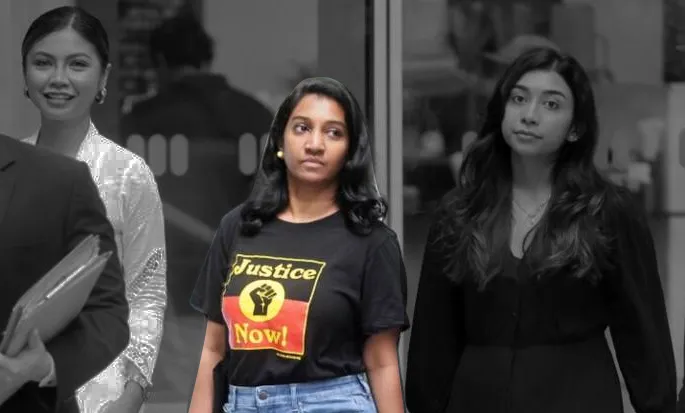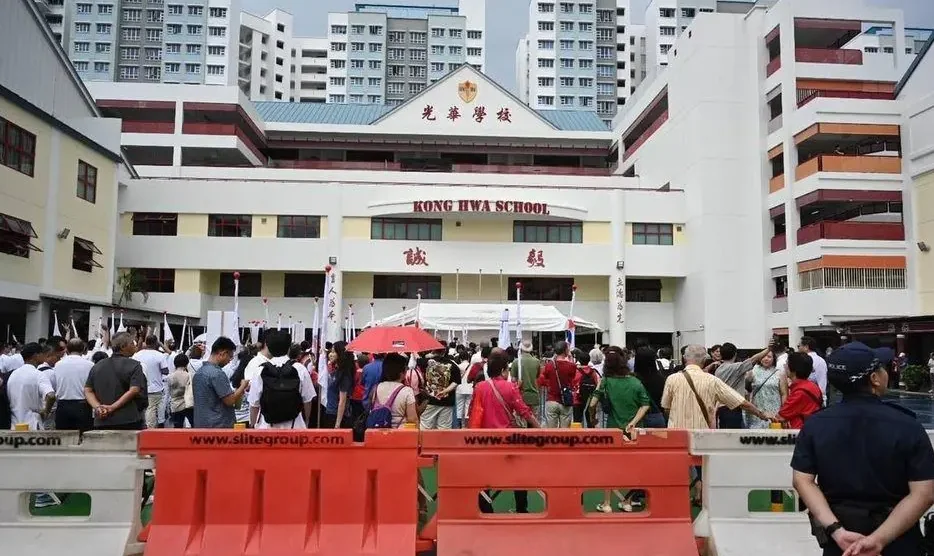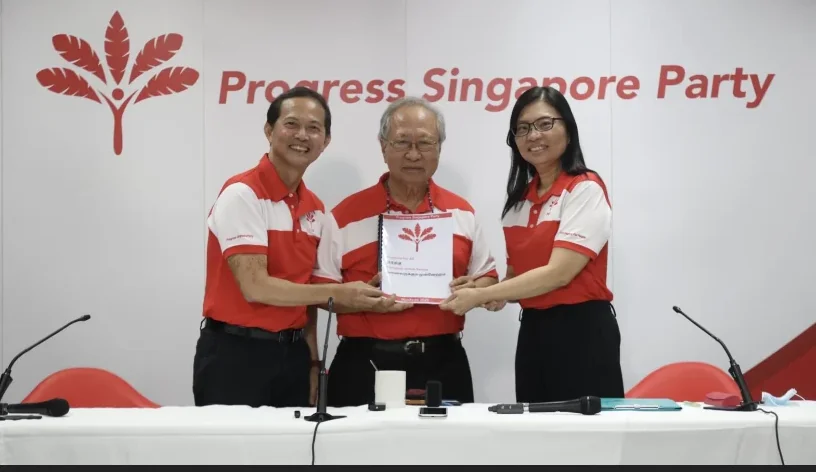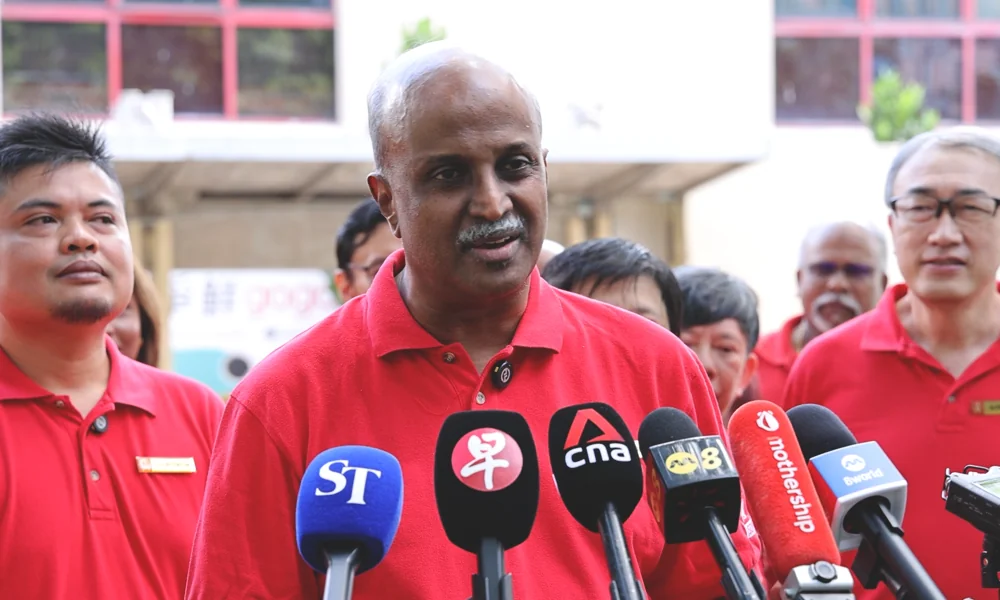认识安娜马莱·科基拉·帕瓦蒂——希望在新加坡设立“毒品使用区”的活动人士
尽管科基拉付出了大量精力——从抗议活动到利用知名人物和国际媒体的影响力——但她所参与的任何活动都没有取得显著影响或实际成果。

新加坡的激进主义圈子常常是一群熟面孔,而其中一位引人注意的人物是安娜马莱·科基拉·帕瓦蒂(Annamalai Kokila Parvathi)。 最近在6月27日(星期四),这位35岁的女性因在2月2日未经许可在总统府周边——这是一个禁止区域——组织游行而被法院起诉。 据称,科基拉作为一名民间活动人士,教唆Mossammad、Siti Amirah、Alysha Mohamed Rahmat Shah、Anystasha Mohamed Rahmat Shah以及其他未知人士参与了这一活动。 <h3>安娜马莱·科基拉·帕瓦蒂是谁,</h3> 根据她的<u>博客</u>,科基拉是“一位居住在新加坡的独立作家、研究者、协调人和社区组织者”。 她曾在女性权利组织AWARE担任活动负责人,后来成为反死刑活动组织“转型正义联盟”(TJC)的主要负责人之一。 她的教育背景包括印度泰米尔纳德邦的钦玛亚国际寄宿学校和新加坡国立大学。 <strong>科基拉称中央肃毒局和清真寺的禁毒运动“种族主义和把羞耻感武器化”</strong> 上周四,在“<strong>boldplaysg</strong>”播客中,科基拉称中央肃毒局与新加坡71座清真寺之间的合作的“Dadah Itu Haram(毒品不清真)运动”是“种族主义和把宗教羞耻感武器化”。她批评清真寺变成了人们互相评判和监督的地方,而不是促进疗愈和接纳的场所。 <div> <p dir="“auto“"><img class="“aligncenter"></p> <h3>科基拉主张在新加坡设立“毒品使用区”</h3> 在同一播客中,她表达了在新加坡合法化毒品的想法,提议设立指定的“使用区”并提供危害较轻的违禁品。她建议由社区和医疗工作者监督这些区域。 科基拉引用西班牙“有效果的”法律作为毒品合法化和监管的典范。然而,她的论点集中在禁令上,而不是获取这些毒品的便利性——这才是监管的主要核心。 根据西班牙卫生部的一份报告,在2019/2020年度,15-64岁的人中,估计有23.7万名首次使用大麻,其中最多的是25岁以下男性;此外6.1万人首次使用可卡因,其中25岁以下男性的首次使用率最高。 2018年,西班牙14-18岁的学生中,有22.22万名开始使用大麻。 科基拉也没有提到这不仅影响药物滥用者,还影响他们周围的人。她忽略了毒品可能毁掉使用者及其周围人生活的事实,可能在新加坡导致更广泛的社会问题。 <div> <strong>科基拉与法律的前几次摩擦</strong> 根据内政部(MHA)的说法,科基拉曾在2017年12月5日收到严厉警告,并因参与未经许可的其他公众集会在2021年11月30日收到为期24个月的有条件警告。 <p dir="“auto“"><img class="“aligncenter"></p> <div> 2021年,科基拉与一群活动人士在教育部(MOE)大楼前举牌进行了“和平示威”,要求教育部长黄循财停止在教育部所属学校中对LGBTQ+学生的进行“他们所称的歧视”。 <p dir="“auto“"><img class="“aligncenter"></p> <div> 2017年,她在地铁列车上参加了一次“无声抗议”,以纪念光谱行动30周年,那是1987年针对通过暴力手段推翻政府的马克思主义阴谋的一次秘密行动。 <h3>科基拉发动学生参与公民抗命</h3> 2021年突然终止的耶鲁大学—新加坡国立大学合作的决定为科基拉提供了一个加强学生运动和保护他们在教育机构内权利的机会。她呼吁学生立即采取行动,确保他们不再被“剥夺重要的学生生活的决定”所“袭击”。 科基拉还呼吁学生组建强大、独立的学生会,以争取教育的民主化和社会化,抵制专制的资本主义官僚的不公正。这种方法类似于香港的黄之锋,他同样动员学生进行民主改革和社会正义。 <h3>科基拉想召集公民制造混乱和破坏</h3> 在她的博客中,科基拉概述了反对死刑的公民抗命的策略。 她催促新加坡社会的各界联合抗议: <ul> <li>律师应该一起抗议并发声。</li> <li>学生应该在死刑执行期间组织罢课。</li> <li>记者应该拒绝发表政府的宣传。</li> <li>店主和商家应该在死刑执行期间关闭店铺。</li> <li>警察和监狱官员应该罢工或拒绝协助执行死刑。</li> <li>医疗工作者应该施压医疗协会反对执行死刑。</li> <li>母亲和照护者应该让孩子在家不去上学以示抗议。</li> </ul> 她强调韧性,表示抗议不仅限于芳林公园和社交媒体,倡导集体行动以实现废除死刑的目标。 <div> <h3>科基拉鼓动外国干预新加坡内政</h3> 科基拉和其他活动人士积极鼓动外国对新加坡死刑法律施加压力。 知名商人和人权倡导者理查德•布兰森通过其维珍集团网站分享了科基拉关于唐加拉朱•苏皮亚的故事,引起了广泛的国际关注。唐加拉朱因教唆贩卖超过1公斤大麻被判死刑。布兰森的介入带来了对该案件的重大国际关注,突显了新加坡毒品相关犯罪的严厉惩罚。 <p dir="“auto“"> <img class="“aligncenter"></p> <div> 此外,科基拉向《Vice世界新闻》寻求帮助,以批评对贩毒者的严厉判决。《Vice》随后发表了她的声明,她强调了判处死刑所需的最低证据和误判的高风险。 <p dir="“auto“"><img class="“aligncenter"></p> 科基拉付出了大量精力——从抗议活动到利用知名人物和国际媒体的影响力。她最新的尝试似乎集中在批评清真寺和穆斯林对新加坡强有力的禁毒政策的支持。 她所参与的任何活动都没有取得显著影响或实际成果,反而使行动主义和活动团体的声誉受损。</div></div></div></div></div></div>






